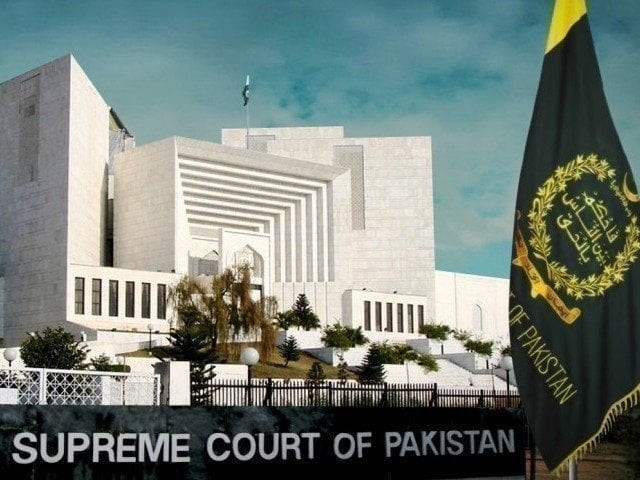The Supreme Court. PHOTO: FILE
ISLAMABAD:
The fate of Pakistan’s top court hangs in the balance as the government pushes through the 27th constitutional amendment – a move that could redefine, or even rename, the Supreme Court itself.
Tense deliberations are reportedly underway within the judiciary on whether to respond collectively to the existential threat to judicial independence.
Under the proposed amendment, the Supreme Court will be placed under a newly created Federal Constitutional Court (FCC), its decisions bound by the latter’s jurisprudence. The FCC’s first chief justice would be appointed by the executive branch, a move that critics warn risks undermining the separation of powers.
Observers have described the development as possibly “the last week of the current Supreme Court”, noting that the amendment even seeks to remove “Pakistan” from the SC’s name and from the chief justice’s title after the reform takes effect.
The government, meanwhile, appears intent on passing the bill within days.
Chief Justice Yahya Afridi is scheduled to leave for Turkey on November 12, after which Chief Justice Syed Mansoor Ali Shah will serve as Acting CJP. But if the 27th Amendment becomes law, the government can instead handpick any Supreme Court judge for the position.
As the new week begins, all eyes are on the SC and how its judges will react to the government’s controversial change. Monday is the first working day since the introduction of the bill in Parliament, and expectations for a reaction are high.
Lawyers predict that the court may soon break its silence, either through an institutional stance or through individual justices voicing dissent against the proposed changes.
Legal experts are urging the judiciary to stand united in defense of its independence – a cornerstone of the constitution – and have called on CJ Afridi to convene a full court session before moving the bill forward.
The oversight committee may also ask Pakistan’s attorney general to share the draft of the 27th constitutional amendment for scrutiny, amid serious fears that the independence of the judiciary is under threat.
The response of CJP Yahya Afridi and the three members of the Constitutional Bench Committee will be decisive regarding the proposed amendment.
The 27th Amendment states that the executive branch will appoint the first FCC Chief Justice from among the current SC Justices.
Under the proposed 27th Amendment, the executive branch would appoint the first chief justice of the newly created FCC from among current SC judges, a provision that critics see as striking at the heart of judicial autonomy.
The government has yet to justify why a new apex court is needed when the existing CB has already ruled in favor of key issues over the past year. So far, no one from the judiciary has questioned why the SC should be subordinated to a body whose leader is to be appointed by the government.
Even the ruling parties’ legal experts do not advise their political leadership on the legitimacy of a court whose head is appointed by the executive. Similarly, Supreme Court justices who may be candidates for appointment to the FCC must recognize the serious doubts surrounding the legitimacy of the current Parliament.
A major challenge will be how the new FCC removes the perception that it operates under the influence of the current regime.
There are two views of the SC judges who have been sidelined by the executive and their peers.
The first suggests that they should not remain part of the current system. Former Additional Attorney General Tariq Mahmood Khokhar states that “the time is ripe to step back on principle and with a clear conscience”.
He added that “there are precedents, but not many, when giving up the office of judge was considered the more honorable course”.
However, another senior lawyer disagrees. “I sincerely hope that no judge will act on haste or instinct. No one should resign. Just wait and see,” he said. He added that all independent judges should not be discouraged as “it is not over yet”.



